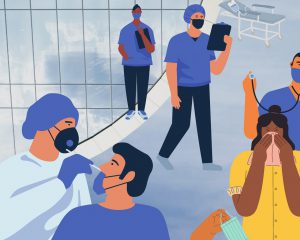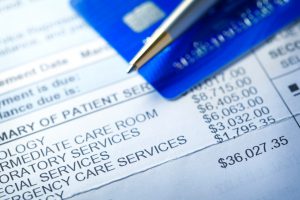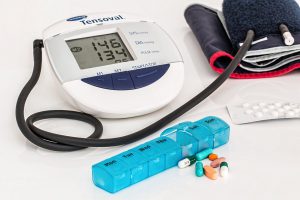UnitedHealthcare, the country’s largest health insurance company, is looking to crack down on unnecessary emergency room visits with a new policy, which was originally set to go into effect on July 1st. The insurance carrier is planning to begin scrutinizing all emergency room claims to determine if they are actually medical emergencies; if these claims are found not to be true medical emergencies, the claims will either be denied, or covered on a limited basis, depending on the patient’s insurance plan. However, because the company has received backlash from doctors, hospitals, and the American Hospital Association (AHA), UnitedHealthcare released a statement on June 10th, saying that they will postpone the new policy until the end of the pandemic. So, what can policyholders expect in the future when it comes to emergency room coverage?
Why UnitedHealth Postponed The Policy

The American College of Emergency Physicians have been pushing back against the new policy, pointing out that the change could mean patients will avoid going to the emergency room for fear of large hospital bills. Doctors and hospitals are especially worried that people with true emergencies, such as a heart attack, will not go to the hospital, which could result in serious damage, or even death. They also worry because many serious conditions have symptoms that overlap with less serious conditions, and patients need to be able to seek emergency care for diagnosis.
Because of the controversy surrounding the new policy, which seems especially poorly-timed during a pandemic, the Minnesota-based health insurance company has decided to postpone the policy until the pandemic is over.
“Based on feedback from our provider partners and discussions with medical societies, we have decided to delay the implementation of our emergency department policy until at least the end of the national public health emergency period,” Tracey Lempner, spokeswoman for the Minnesota-based insurer, said in a statement. “We will use this time to continue to educate consumers, customers, and providers on the new policy and help ensure that people visit an appropriate site of service for non-emergency care needs.”
What Customers Should Expect
One of the reasons UnitedHealthcare wants to crack down on emergency room claims is that hospitals charge more for procedures performed at a hospital as compared to procedures performed in other settings, and they feel that customers are using these expensive services unnecessarily. In fact, based on data from the UnitedHealth Group, UnitedHealthcare’s parent company, emergency department misuse costs the U.S. healthcare system roughly $32 billion annually. The insurer would prefer that as many less serious issues as possible be handled in a non-hospital setting, which would cost the company and patients less.
“We are taking steps to make care more affordable, encouraging people who do not have a health care emergency to seek treatment in a more appropriate setting, such as an urgent care center,” Lempner said.

So how will the new policy work and what will its effect on patients be? According to UnitedHealthcare, they will not apply the new policy to those with Medicare Advantage plans or contracted Medicaid coverage, but it will apply to everyone else, including employer-sponsored plans. The only other exceptions are for children under 2 years old, and observation stays. The company will evaluate emergency room claims based on the patient’s medical concern, the intensity of diagnostic services performed, and other patient complicating factors.
It is projected that as many as 1 in 10 claims could be rejected under this new policy, but there is an appeals process. If a claim is denied, the hospital can submit evidence that the visit met the definition of an emergency consistent with the prudent layperson standard, which requires insurance companies to provide coverage for emergency care based on symptoms, not the final diagnosis.
“If the event is determined to not be an emergency, the claim will be paid based on the member’s benefits,” Lempner said, adding, “We estimate that nationally less than 10% of [emergency] claims will be classified as non-emergent through this program.”
When the pandemic is over, the policy will take effect in 34 states and the District of Columbia: Alabama, Arizona, Arkansas, Colorado, Connecticut, Washington, D.C., Delaware, Florida, Georgia, Indiana, Iowa, Kansas, Kentucky, Louisiana, Maryland, Massachusetts, Michigan, Mississippi, Nebraska, Nevada, New Hampshire, New Jersey, New York, Ohio, Oklahoma, Oregon, Pennsylvania, South Carolina, Tennessee, Texas, Utah, Virginia, Washington, West Virginia and Wisconsin.


